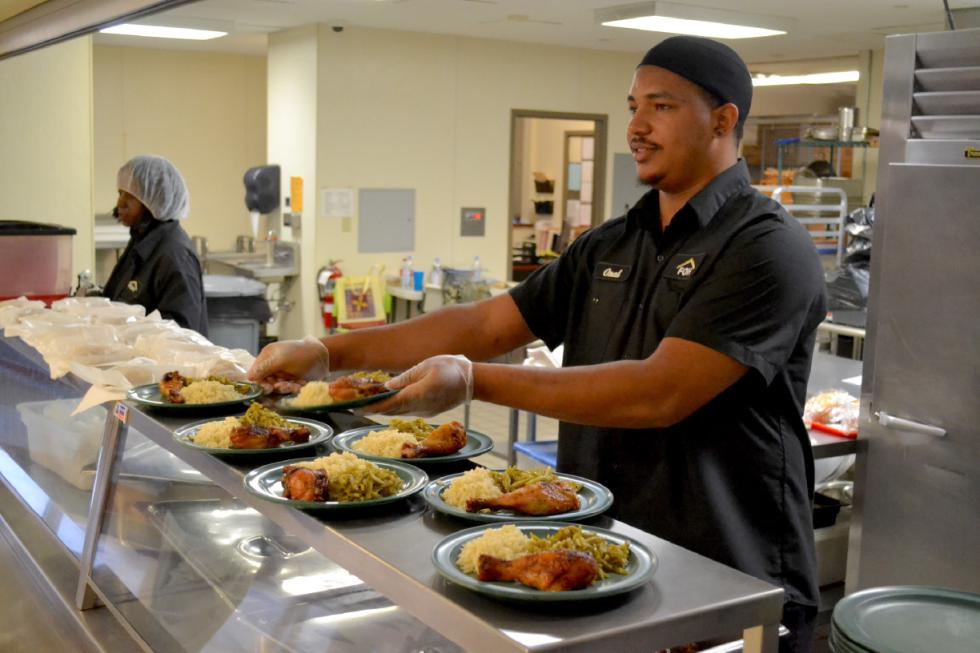It’s a cold evening on Worthington Street in Springfield, but the Resource Center has filled with warmth. In the last minutes before dinner, visitors keep busy by playing cards, writing, reading, braiding hair, and swapping stories.
The Resource Center is run by Friends of the Homeless, a Springfield-based nonprofit. The organization, founded 27 years ago, also manages 110 low-income housing units next door, as well as the largest emergency shelter for adults in western Massachusetts.
In the kitchen, cook Oral Dennis carts out baked chicken, rice, and green beans from the oven. The food, which is all cooked and prepared on site, is served cafeteria-style. By the time Dennis places the first full plates on the counter, a long line of hungry guests has formed.
“We don’t have a slow season,” says Kathy Tobin, the organization’s director of program development. “It’s always busy here.”
In addition to fundraising and volunteer coordination, Tobin helps to oversee the kitchen. She says that between 1,100 and 1,200 people stay at the shelter each year. But they feed far more. Tobin estimates that last year the kitchen, which is open 365 days a year, served about 155,000 meals.
“We have a lot of challenges in Springfield,” she says. “The poverty rate is high, and the need is pretty consistent.”
This winter, Friends of the Homeless has needed to add fewer additional beds to the shelters than in previous years. Tobin hopes this is a sign that their effort to move people into permanent living situations is paying off.
On Monday, MassLive ran an essay by Charlie Baker in which the Governor-elect decried the amount of state funding that goes toward housing the homeless in hotels and shelters for extended periods of time, a problem that was detailed in a recent series of articles in The Recorder. Those who agree with him often refer to this as “warehousing,” calling it a wasteful strain on state resources.
In this tender economic climate, Friends of the Homeless finds itself in a tight spot, supplementing its state money with fundraising and private grants but pressed to continue providing the additional solution-oriented support that Baker is promoting.
“We stretch our pennies, but it’s a daunting task to raise enough money to keep the lights on,” says Tobin. “Our shelter is among the lowest-funded shelters in the state. Even if we were to receive the state average, it would help us tremendously. But the state’s contract rates with shelters were earmarked piecemeal over the years. There was no formula, and Springfield was left far behind.”
Friends of the Homeless receives $25 in state money for each bed per night, up to 133 beds. But the real cost is $32 per bed, agency officials say, and the shelter sometimes holds up to 180 guests.
All the more reason, Tobin says, that the center thrives on help from volunteers. Anyone over 18 can volunteer, and everyone is encouraged to be in touch. “It’s been a hugely important help,” she says. “And it’s a great experience. I haven’t had many people join us once and not want to come back again.”•



